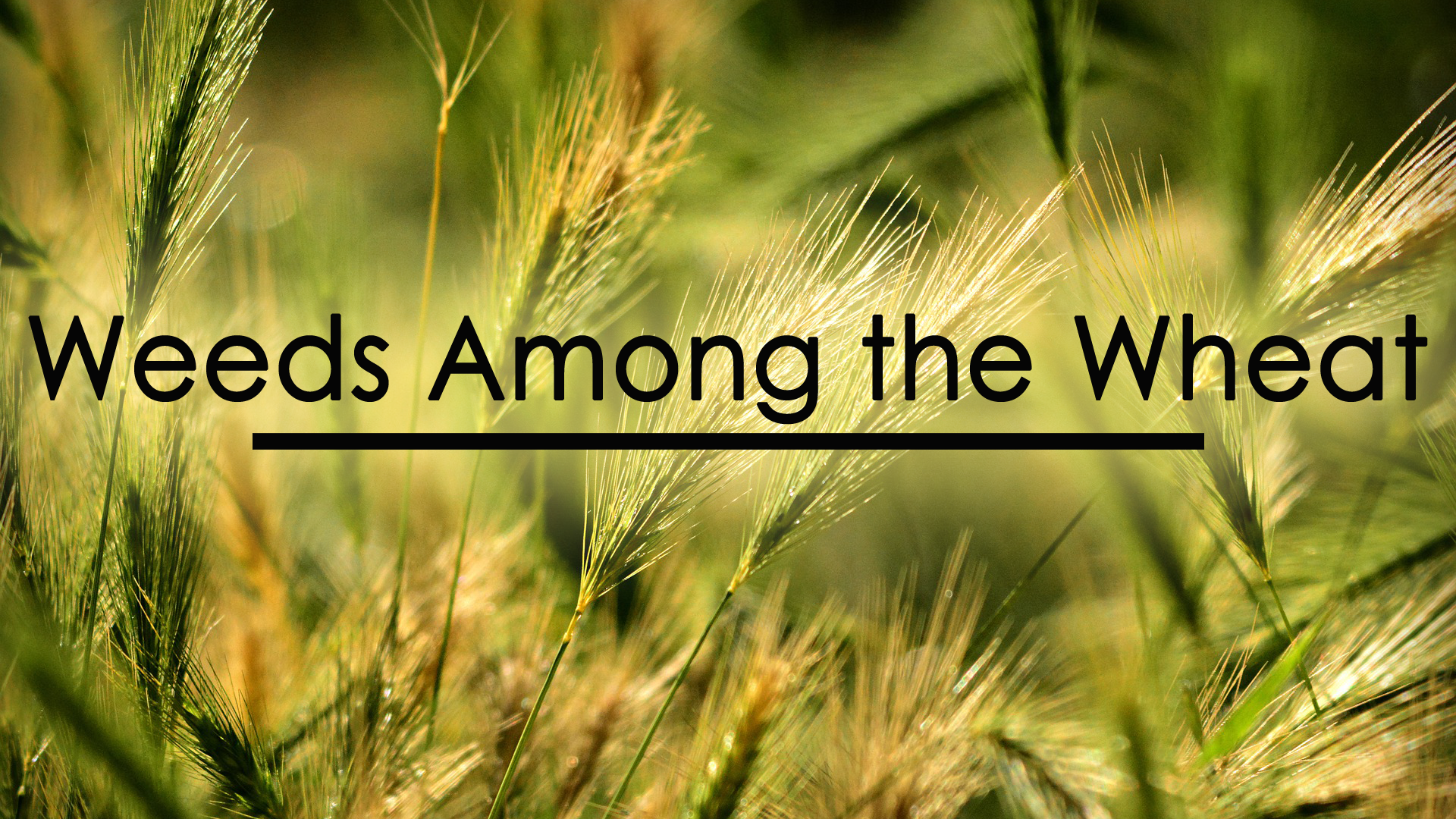Weeds Among the Wheat: Reflections on Matthew 13:24-30
by Alyce M. McKenzie on Monday, July 13, 2020

Weeds Among the Wheat
Reflections on Matthew 13:24-30
Several parables are only found in Matthew’s gospel. They include The Planted Weeds (13:24-30), The Unforgiving Servant (18:23-34), The Laborers in the Vineyard (20:1-15), The Two Sons (21:28-32) and The Last Judgment (25:31-46). All of them end with a scene of someone’s downfall. While the minor key theme song of judgment plays in the background.[1] The unforgiving servant ends up being tortured in a dungeon (18:34). The laborer who dared to complain about his wages is sent packing (20:14). The son who didn’t go to the fields is eventually excluded from the kingdom (21:32). Those who did not see Jesus in the destitute go away into eternal punishment (25:46). And the weeds get collected, bundled, and burned in a furnace of fire (13:42). That’s a whole lotta judgment for one gospel.
Speaking of judgment, I rolled through a red light several months ago and was stopped by a police officer and given a ticket. I was given the mandatory opportunity to attend “red light school” at the township building one evening. So there I sat with 20 or 30 of my fellow citizens, now labeled “red light runners.” The 2 hour program began, as you would expect, with a slideshow of cars destroyed by red light runners, slides of people hurt and even killed by red light runners and statistics to last a lifetime. Flashing before us for a full half an hour were images of the consequences of our actions. I must admit, that, as weary as I sometimes get of Matthew’s repeated pictures of judgment, I do scrupulously stop at yellow lights now.
Matthew must have thought that his congregation needed a warning label affixed to parables, a warning of the consequences of merely doing their religion lip service, of being hearers but not doers. A crucial expression of our obedience to Jesus’ teachings emphasized by Matthew is not to judge ourselves superior to others (7:1-5; 18:1-5) on the basis of our religious heritage or observances. The parable of the weeds, a parable unique to Matthew among the four canonical gospels, (Matthew 13:24-30; Gospel of Thomas 57), shows us that he believed the present time is a time of grace in which God allows weeds and wheat to grow together and it is God’s to judge which is which. So we are not to judge one another, but we are to live aware of the winnowing that is to come at God’s hands. The presence of forgiveness in our lives is an important criterion on which our obedience will be judged when the time comes. We are not to roll judgmentally down the road of life, but we are to stop when necessary, to take stock of our own sins and to extend the same forgiveness we have received to others. Mathew emphasizes that the one who teaches us this lesson on forgiveness is the Son of God, who has promised to be with us to the end of the age (28:20). Therefore, we are not being asked to summon this forgiveness apart from the presence of Jesus, but summon it we must.
When we read this parable of the Weeds among the Wheat, we’d better not assume we are the wheat!
[1] Duke, 49.
